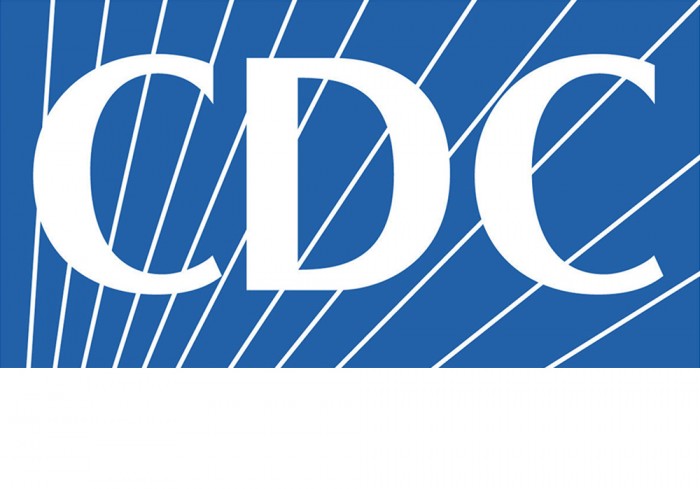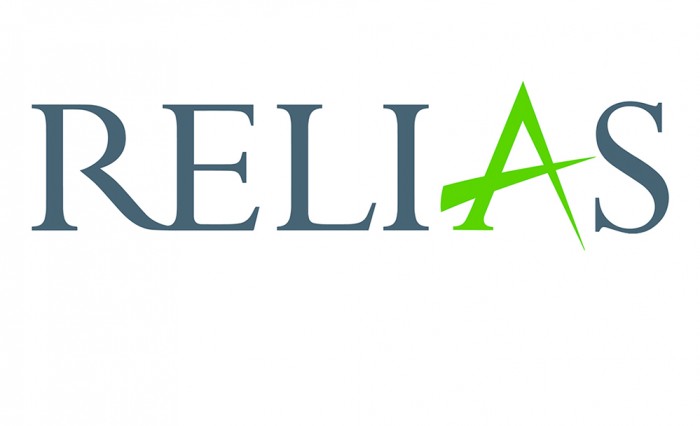The Centers for Disease Control and Prevention (CDC) issued new guidance for healthcare providers that provides information on the best ways to conserve personal protective equipment (PPE), such as gowns, facemasks, N95 respirators, and eye protection as they experience supply shortages due to the outbreak of COVID-19.
Preparing for Coronavirus and Influenza: Free Online Training & Resources
From RELIAS:
The well-being and safety of the individuals we serve is our top priority and will remain at the heart of every decision we make.
As you prepare for Coronavirus (COVID-19), Relias wants to directly support your efforts by providing accurate and impactful education on infection prevention and control. We are currently offering a free digital toolkit — How to Prepare for Coronavirus (COVID-19) and Influenza: Training & Resources, which contains unlimited access to courses and fact-driven information regarding COVID-19 preparedness and prevention.
This toolkit will continue to be updated with the latest resources; please check back often!
We encourage you to share this toolkit with colleagues, friends, and family to help combat coronavirus. At Relias, providing these types of resources is core to our mission to measurably improve the lives of the most vulnerable members of society and those who care for them.
Thank you for helping communicate this information. In times like these we listen, we learn, and we support each other.
April 1, 2020 MLTSS Meeting Agenda
The agenda for the upcoming April 1, 2020 Managed Long-Term Services and Supports (MLTSS) Subcommittee has been released. This meeting is scheduled to take place from 10:00 am – 1:00 pm. As a reminder, this meeting has been changed to webcast/teleconference only. Use this link for LISTServs and websites to ensure you receive email from DHS, including communication regarding the MLTSS Subcommittee and the Community HealthChoices Program.
Tele-Intervention for Early Intervention Procedures During COVID-19 Pandemic
OCDEL released guidance for the implementation of Early Intervention services for families of children birth to 3 years via tele-intervention. See below:
Infant Toddler Early Intervention Procedures during COVID-19 Pandemic
March 20, 2020
The procedures outlined in this document describe how Early Intervention (EI) services can be delivered while face-to-face interactions are limited as a result of the COVID-19 pandemic.
What is tele-intervention and what services can be delivered through tele-intervention?
The term tele-intervention is being used to describe Early Intervention services that are being provided using audio/video technology and where that technology is not available the use of a telephone. Tele-intervention for the purpose of Early Intervention services are services consistent with and by the provider types that are identified in the Pennsylvania’s Office of Medical Assistance Programs, Quick Tip #229 guide where they are referred to as tele-medicine. The provider types are those for physical therapy, occupational therapy and speech therapy. Tele-intervention also applies to Early Intervention payment for special instruction and maintenance funded occupational therapy, speech therapy and physical therapy.
Managing Referrals:
New families are contacting our local EI program seeking services. How should we manage the intake and initial evaluation?
If administrative offices are open or there is the capability to retrieve referrals remotely, new referral information should be processed. The referral date should be accurately documented. If referrals are being processed, initial evaluations and Individualized Family Service Plan (IFSP) meetings should be scheduled in the order in which the referral was received. If administrative offices are closed, the referral will need to be processed once the administrative office is opened. The referral date documented should be the date the referral was received.
Regulations require the IFSP to be developed within 45 days of the referral for a child new to the Early Intervention program, this timeline may not be met. How should late Initial IFSPs be documented?
Referral dates should be accurately documented if administrative offices are open or there is the capability to take referrals during the COVID-19 pandemic. IFSPs that are not developed within 45 days should be documented with the reason “Act of Nature.”
Managing IFSP Services:
How does a Service Coordinator obtain consent for IFSP changes during the COVID-19 pandemic?
Service Coordinators may obtain verbal consent from the family for IFSP changes during the COVID-19 pandemic. The Parent Rights Agreement (PRA) must be reviewed with the family as part of obtaining verbal consent. Consent must be documented in a Service Coordination note along with the date it was obtained. The family can sign and date the PRA at the next face-to-face visit.
Can a family expect to receive all services that can be delivered through tele-intervention at the same frequency/duration as face-to-face services?
The family, Service Coordinator, and IFSP service provider(s) will need to determine on a case-by-case basis how to best implement the use of tele-intervention as the means to deliver the services that can be delivered through tele-intervention. This may mean that some services will have limited interaction, perhaps a 15 to 30 minute audio/video session, such as skype or facetime to share progress, strategies and plan for the next session.
Should the IFSP be modified to reflect the decisions of the team regarding postponed services or implementation of tele-intervention?
No changes are required regarding the service frequency and/or duration or the location of service if a family postpones IFSP services or chooses to implement tele-intervention services.
Should teams recommend changes to the IFSP unrelated to tele-intervention or postponement of services, if needed, like adding a new service or changing the frequency or duration of services?
Any change to an IFSP requires careful planning by the family, Service Coordinator and service provider(s). Teams may continue to make changes to IFSPs as they are able during the COVID-19 pandemic.
If services are not provided due to the COVID-19 pandemic, should they be made up?
For children who do not receive EI services for an extended period, once services resume, the IFSP team should review the IFSP to identify whether any changes are needed.
Managing Tracking Services:
How should Service Coordinators implement Tracking/Screening for families in the Early Intervention program?
The tracking/screening program, including the use of the Ages & Stages Questionnaire, can be implemented using mail, phone or internet technology. The Service Coordinator should document any implementation changes to the tracking plan.
Managing Transition:
Children are turning 3 in the next few weeks/months; they have participated in transition meetings but services with the Infant/Toddler program will be coming to an end. What should a family know about Preschool Early Intervention services?
Children who have participated in transition related activities and have turned 3 will no longer be eligible for Infant Toddler Early Intervention services. Local Infant Toddler Early Intervention programs will need to develop a communication plan in partnership with the Preschool Early Intervention program to ensure families understand what to expect regarding the development of and implementation of the Individualized Education Program (IEP).
Transition activities must occur between the ages of 2 years 3 months and 2 years 9 months. While some transition activities, transition meetings and plans can wait, the activities, meetings and plans will eventually need to be developed. How is this possible during the COVID-19 pandemic?
Local Infant Toddler Early Intervention programs will need to develop a plan for how to conduct transition meetings in partnership with the Preschool Early Intervention program to ensure families have a timely transition to the Preschool Early Intervention program.
Managing Annual Evaluations & IFSPs:
How should our program conduct an annual evaluation and IFSP during the COVID-19 pandemic?
Annual evaluations can be completed in a timely way using the procedures identified in Early Intervention regulation § 4226.61. This process can include observations made by the IFSP service providers, progress monitoring gathered during IFSP service delivery and parent/caregiver report. A re-evaluation report can be completed and documented in PELICAN-EI enabling an Annual IFSP to be developed.
Our program is not able to use a standardized assessment tool during the COVID-19 pandemic to determine eligibility for the annual evaluation. What should be used to determine eligibility for Early Intervention services?
If a child has a documented disability, this should continue to be the reason the child is eligible for Early Intervention services. If a standardized assessment tool cannot be used, and the child is determined to continue to be eligible for Early Intervention services through observation, progress monitoring and parent/caregiver report the eligibility reason should be documented as “Informed Clinical Opinion.”
Should an Annual IFSP developed during the COVID-19 pandemic be written for a full year?
Each IFSP team should use the annual MDE team to determine the length of the child’s Annual IFSP. IFSP teams should continue to monitor the IFSP.
Tele-intervention has changed the frequency and duration of services. How should that be documented when developing the Annual IFSP?
The Annual IFSP should reflect the frequency and duration anticipated if services were to be delivered face-to-face.
Managing Infant/Toddler & Families Waiver Documentation:
The Annual Recertification of Need (123A) is due but there is not a re-evaluation available to complete this recertification of need. How should a program proceed?
The Pennsylvania Department of Human Services is currently seeking a waiver of this requirement. Updated guidance will be provided as it is made available.
Managing Provider Qualifications/Training:
Due to COVID-19, are there any changes to provider qualifications and training?
Early Intervention providers are expected to maintain all professional licensures during the COVID-19 pandemic, unless otherwise authorized by the Department of State Bureau of Professional Licensing.
Early Intervention providers continue to be required to obtain 24 hours of training annually.
How should CPR/First Aid training be maintained during the COVID-19 pandemic?
If CPR/First Aid training expires during the COVID-19 pandemic, the provider should take the online portion of the course and schedule the “hands on” portion of the training as circumstances allow. CPR/First Aid “hands on” training will not be waived. There is no plan to extend expired qualifications. The American Red Cross has provided an explanation of how they are managing the COVID-19 virus.
Managing the Family Survey:
How should the Family Survey be implemented during the COVID-19 pandemic?
Each local program has developed a written implementation plan within their Quality Enhancement Plan (QEP) for the promotion of the Family Survey. These plans may need to be adapted if face-to-face strategies were to be implemented. The Family Survey will continue to be available through the end of June 2020.
Managing Payment for Tele-intervention:
What Fee Schedule should be followed when implementing tele-intervention for IFSP services?
The “Home/Community” rates will continue to be applicable for tele-intervention services implemented during the COVID-19 pandemic.
Only certain providers were mentioned in the Office of Medical Assistance Program’s Provider Quick Tip #229, this does not cover all of the IFSP services available to children and families. Can tele-intervention still be provided?
The Quick Tip #229 was issued to address services for children enrolled in Medical Assistance (Medicaid). Special Instruction for Medical Assistance eligible children is available through a home and community-based waiver, which is why it was not mentioned in the Office of Medical Assistance Program’s Provider Quick Tip. Special Instruction may be provided using tele-intervention and the “Home/Community” rate will remain applicable during the COVID-19 pandemic.
Managing Early Childhood Outcome Data Collection:
Should Early Intervention program staff continue to collect Child Outcome Data (ECO) at entry and exit?
Early Intervention programs should continue to follow procedures and timelines for collecting child outcome data at the child’s entry and exit from the Early Intervention program. For entry data, evidence from parent/caregiver report, any existing evaluation information, and tele-intervention observations can be used to complete the authentic assessment tool. Evidence for exit ECO data can be gathered through parent/caregiver report, progress notes, and observations from recent face-to-face therapy sessions.
If staff need reminders of the ECO data collection process, they should review the ECO 101 and 201 courses on the EITA Portal professional development page. Additional job aides on topics such as approved authentic assessment tools and the how to use the ECO decision tree, can be found here.
DDAP Reminds Residential Treatment Providers the Availability of Flex Beds to Meet Capacity Needs
DHS Encourages Medicaid Providers to Use Telemedicine to Mitigate Spread of COVID-19
COVID-19 ODP Update: Overview of Emergency Amendments to ODP Waivers
This presentation involves discussion on the emergency amendments to the Consolidated, P/FDS, Community Living, and Adult Autism Waivers that were approved by the Centers for Medicare and Medicaid Services on March 18, 2020.
Please join one of the two sessions available today, Friday, March 20, 2020:
12:30 pm – 1:30 pm – https://attendee.gotowebinar.com/rt/2940351784066091787
4:00 pm – 5:00 pm – https://attendee.gotowebinar.com/rt/497822986845449739
A recorded copy will be posted and available on MyODP within 3 hours after the webinars.
Look for it and all ODP COVID-19 Webinars on this page.
A Message from Deputy Secretary Ahrens
For all home and community-based service and intermediate care facility providers offering services funded or administered through the Office of Developmental Programs, please note that you are considered life-sustaining and are therefore exempt from the Governor’s directive asking for the closure of all non-essential businesses. Home and community-based service and intermediate care facility providers offer services that maintain basic health and safety requirements in a multitude of essential ways and those providers are expected to continue offering those services through the COVID-19 crisis period.
Thank you for all of your valuable and life-sustaining work and for your commitment to serving Pennsylvanians with intellectual disabilities and autism.
Kristin Ahrens | Deputy Secretary
PA Department of Human Services | Office of Developmental Programs
Governor’s Order Regarding Life-Sustaining Businesses
Late this afternoon, the Governor ordered all businesses to close at 8:00 pm tonight (Thursday, March 19), except for those considered life-sustaining. For those businesses that are not considered life-sustaining and do not close, the state will begin to take enforcement actions on Saturday, March 21, at 12:01 am.
RCPA members are considered life-sustaining businesses. For a complete chart of life-sustaining businesses, use this link.
Additional information regarding the Governor’s declaration can be found below:
- Official press release from the Governor’s Office
- Order of the Secretary of the PA Department of Health Regarding the Closure of All Businesses That Are Not Life Sustaining
- Proclamation: Order Of The Governor Of The Commonwealth Of Pennsylvania Regarding The Closure Of All Businesses That Are Not Life Sustaining
Questions, please contact Jack Phillips.
COVID-19 Helpful Policy and Procedures From DDAP
This afternoon (Thursday, March 19), drug and alcohol stakeholders received the below email from the Department of Drug and Alcohol Programs Secretary Jen Smith. If you did not receive her email, please see it below in its entirety. The Secretary also provided helpful resources that can be found below:
- Return to Work Medical Verification Form
- Daily Absence Log
- Instructions for Completing Infection Control Screen
- Patient-Visitor Infection Control Screen
- Staff Infection Control Screen
- Supervisor Instructions – Staff Infection Control Screen
- Staff Instructions – Staff Infection Control Screen
Email from Sec. Smith:
Good evening,
First, I want to take an opportunity to thank each of you for the work that you are doing during this unprecedented time. As the front line of defense for our community you are making decisions and implementing procedures based on evolving guidance as we navigate unchartered waters. The department recognizes this is no easy task and fully commit to communicating timely to you as information is available.
As you develop continuity plans to mitigate COVID-19, I thought it would be helpful to share strategies that sister state agencies are adopting, as well as procedures from other states. The policies and procedures below and attached were developed for the safety of patients and staff during this time.
- The Department of Human Services recently released guidance to restrict visitors to all state centers and state hospitals in line with the Center of Disease Control. The press release can be found here which details visitation policies that you may find useful in adopting.
- Additionally, numerous attachments to this email are documents developed by Delaware for both patient and staff screenings in the event either party presents with COVID-19 symptoms.
With the spread of COVID-19 changing operations for the foreseeable future, continued flexibility will be key to successfully navigate this situation. One of the things that I have learned during my time in the drug and alcohol field is that this community is resilient. Thank you for your patience and your commitment to the individuals you serve. Together, we will get through this.
Jen Smith
Secretary
Drug and Alcohol Programs
Questions, please contact Jack Phillips.
















